Echizen City Visit Report: Where 1,500 Years of Craftsmanship Shape the Future
- Shinya Yamada
- Aug 1, 2025
- 3 min read
Updated: Aug 5, 2025
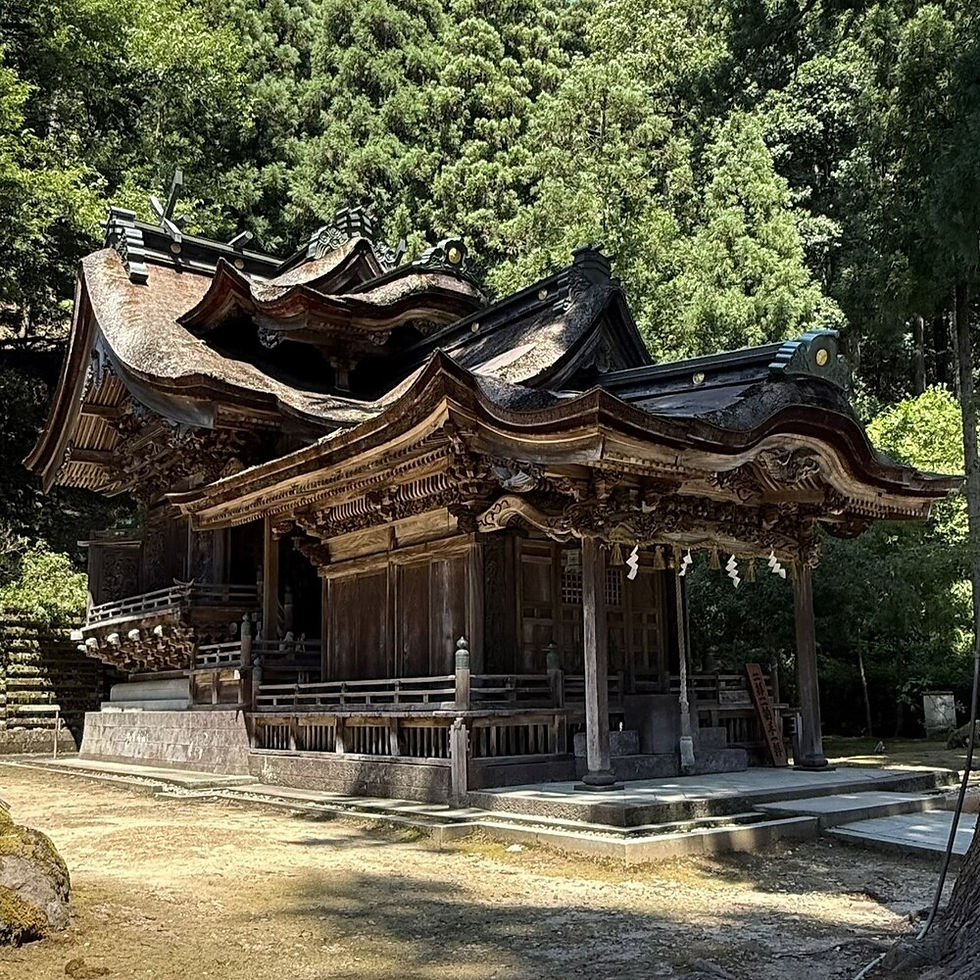
On July 30th, I had the unique opportunity to visit Echizen City in Fukui Prefecture, thanks to an invitation from the city's Vice Mayor. This visit held personal significance for me, as Echizen is the city where my grandparents were born and raised. It felt like a happy coincidence to connect with one of my own roots in this official capacity.
The recent extension of the Hokuriku Shinkansen has made this region more accessible from Tokyo than ever, and my journey was a firsthand look at how 1,500 years of history and craft coexist with modern life. Greeted at Takefu Station by the Vice Mayor and his team, I embarked on a tour to explore the charm of the city and its traditional crafts.
This blog post is the first in a series detailing my visit. Before I dive into the specifics of washi paper making and Japanese knife forging, I want to share my overall impressions of this remarkable city.

Echizen City Protected by Legends and Lords
Our first stops were the brand-new Echizen-Takefu Shinkansen Station and the adjacent Michi-no-Eki Echizen Takefu (roadside station). The waiting room of Echizen-Takefu Station is an artistic marvel, enveloped in walls of traditional washi paper. One might say this lovely space is the most beautiful waiting room in the entire Shinkansen network. The station's design is inspired by the "kounotori" (oriental stork), while the adjacent roadside station features an open-air barbecue space. Together, they serve as a modern gateway to a land with a profoundly deep history.
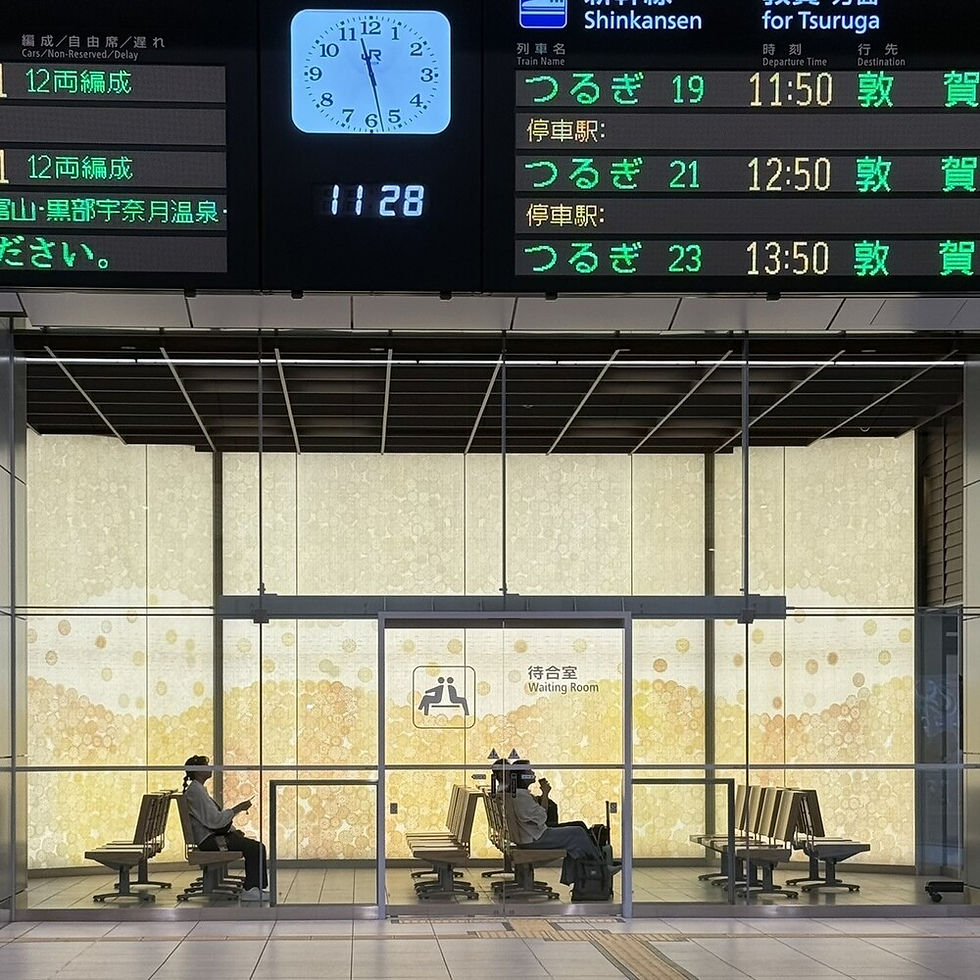
This isn't just any rural town. This area was once "Fuchu," the provincial capital of the ancient Echizen Province. It is a land where Murasaki Shikibu, author of The Tale of Genji, once lived. During the turbulent Sengoku (Warring States) period, powerful warlords like Oda Nobunaga and Maeda Toshiie, founder of the great Kaga Domain, recognized the vital importance of the artisans here. They didn't just conquer the land; they protected its craftspeople, understanding that the "paper" produced here was an essential communication tool, as crucial as any modern technology. This legacy of patronage created a sanctuary for craftsmanship that has allowed its traditions to flourish for centuries.
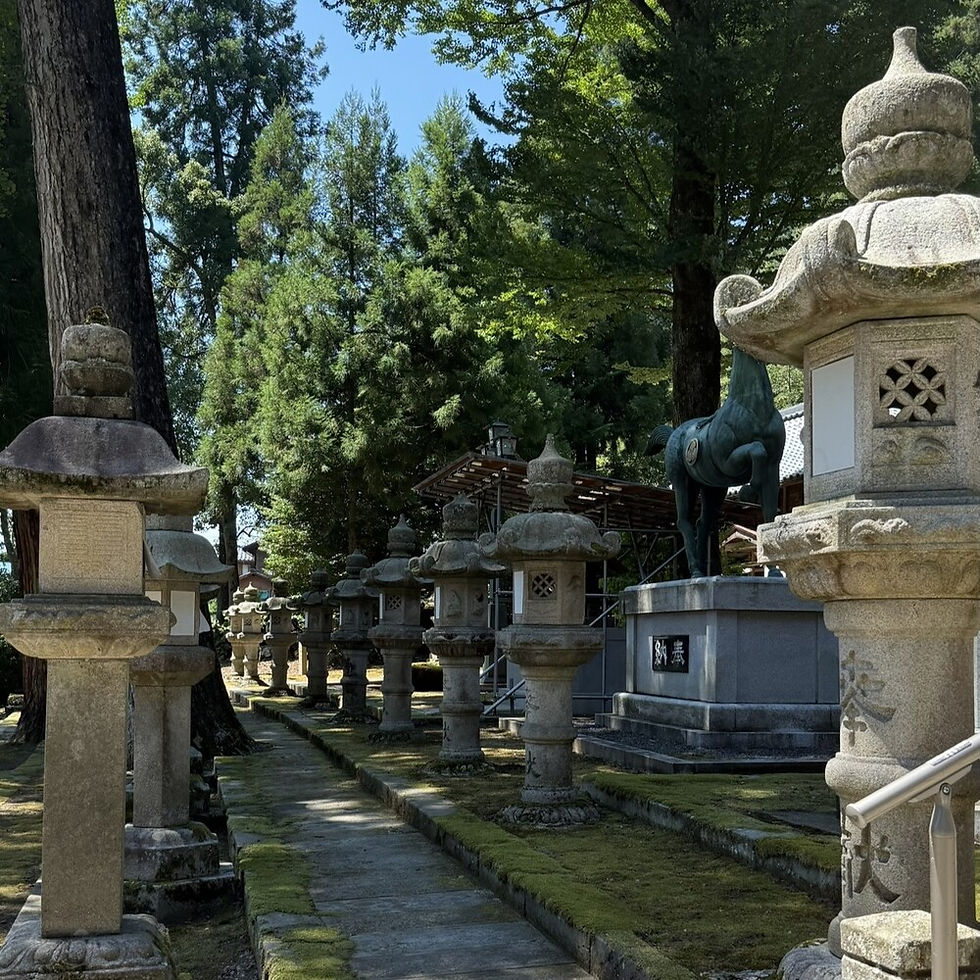
The Spirit of Washi Paper and Japanese Knife
To understand Echizen, you must understand the deep spirituality imbued in its crafts.
Our journey into the world of Echizen Washi Paper began at its spiritual home, the Okamoto & Otaki Shrine. Its stunning, intricate roof structure is a designated National Important Cultural Property. According to legend, a goddess named Kawakami Gozen appeared here 1,500 years ago and taught the villagers the art of paper-making. Guided by the passionate director, Mr. Shimizu, we explored the Echizen Washi Village, including the Udatsu Paper & Craft Museum and the Papyrus House. It became clear that washi paper here is more than a product; it's a sacred trust.
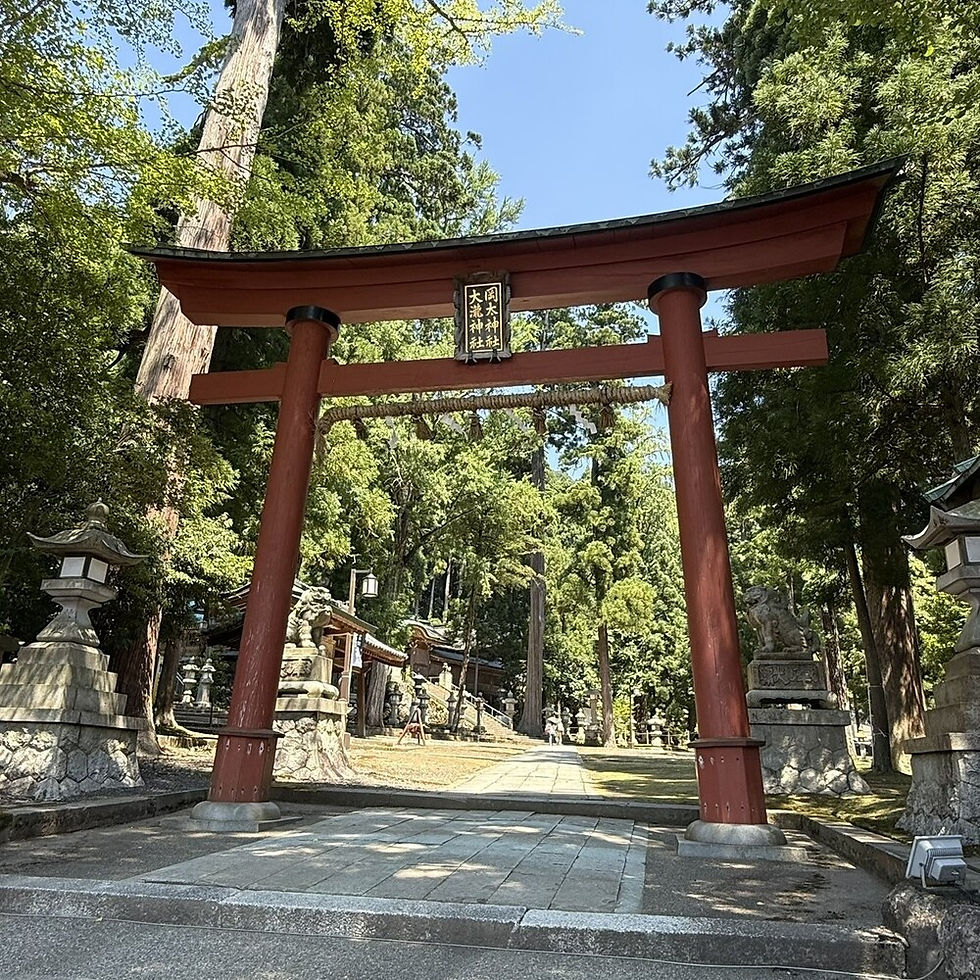
Later, we visited the Takefu Knife Village, a cooperative workshop where the air crackles with the sounds of forging and hammering. Echizen cutlery, with its 700-year history, began when a master swordsmith from Kyoto, Chiyozuru Kuniyasu, settled here. But he didn't just forge weapons of war. It's said he crafted his blades with a prayer for peace, a spirit that the artisans here carry on today as they create world-renowned kitchen knives.
A Taste of a City That Works
Though a small city of about 80,000 people, Echizen boasts three great local gourmet dishes.
Oroshi Soba: Cold buckwheat noodles served with grated daikon radish. Incredibly refreshing and a Fukui classic.
Volga Rice (Boru-ga-raisu): A local specialty of an omelet over flavored rice, topped with a pork cutlet and a rich sauce. A truly satisfying meal.
Chuka Soba: A simple, soy-sauce-based ramen that is pure comfort food.
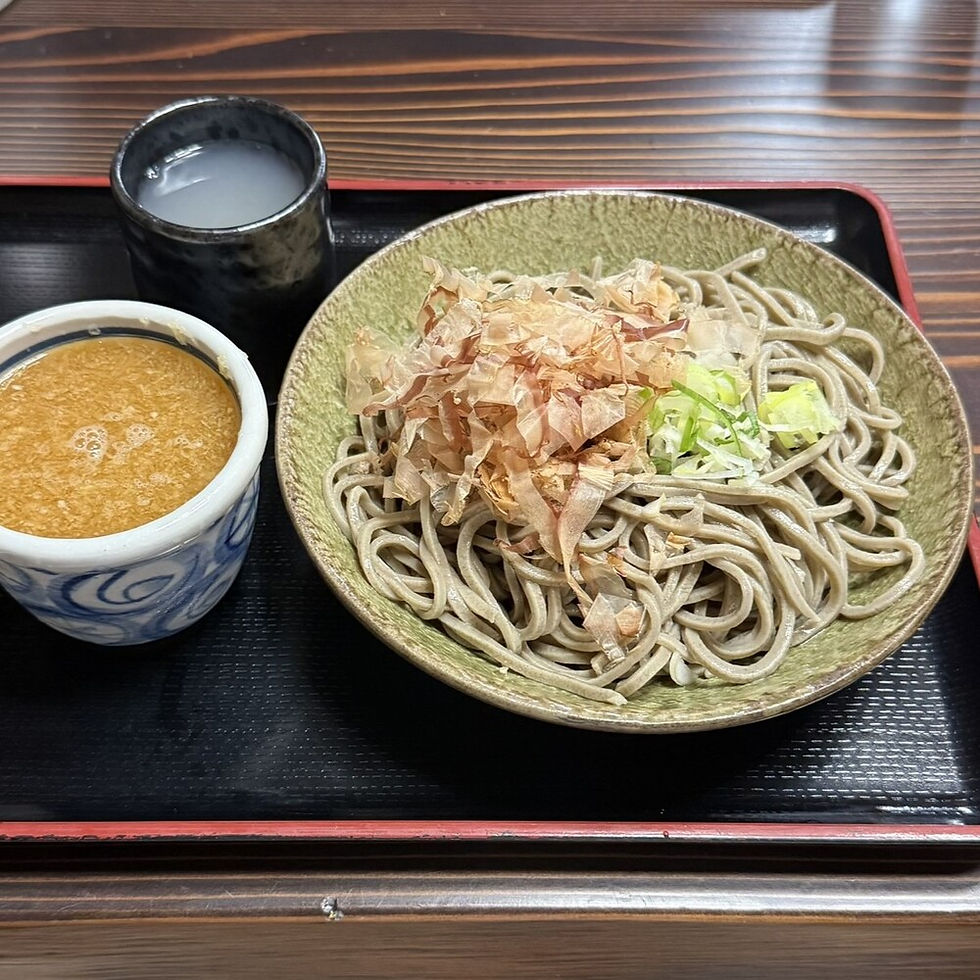
These dishes are the soul food of Echizen, beloved by the people who pour their energy into their crafts day after day.
My visit to Echizen was a rediscovery of the city's profound depth. Its identity as a city of craftsmanship is firmly rooted in the skills and spirit passed down through generations. It is a city of pride, passion, and unparalleled artisanship.
Stay tuned for my next post, where I will take you on a tour of the washi paper making process and share its fascinating details.
Echizen City Visit Report Blog Series
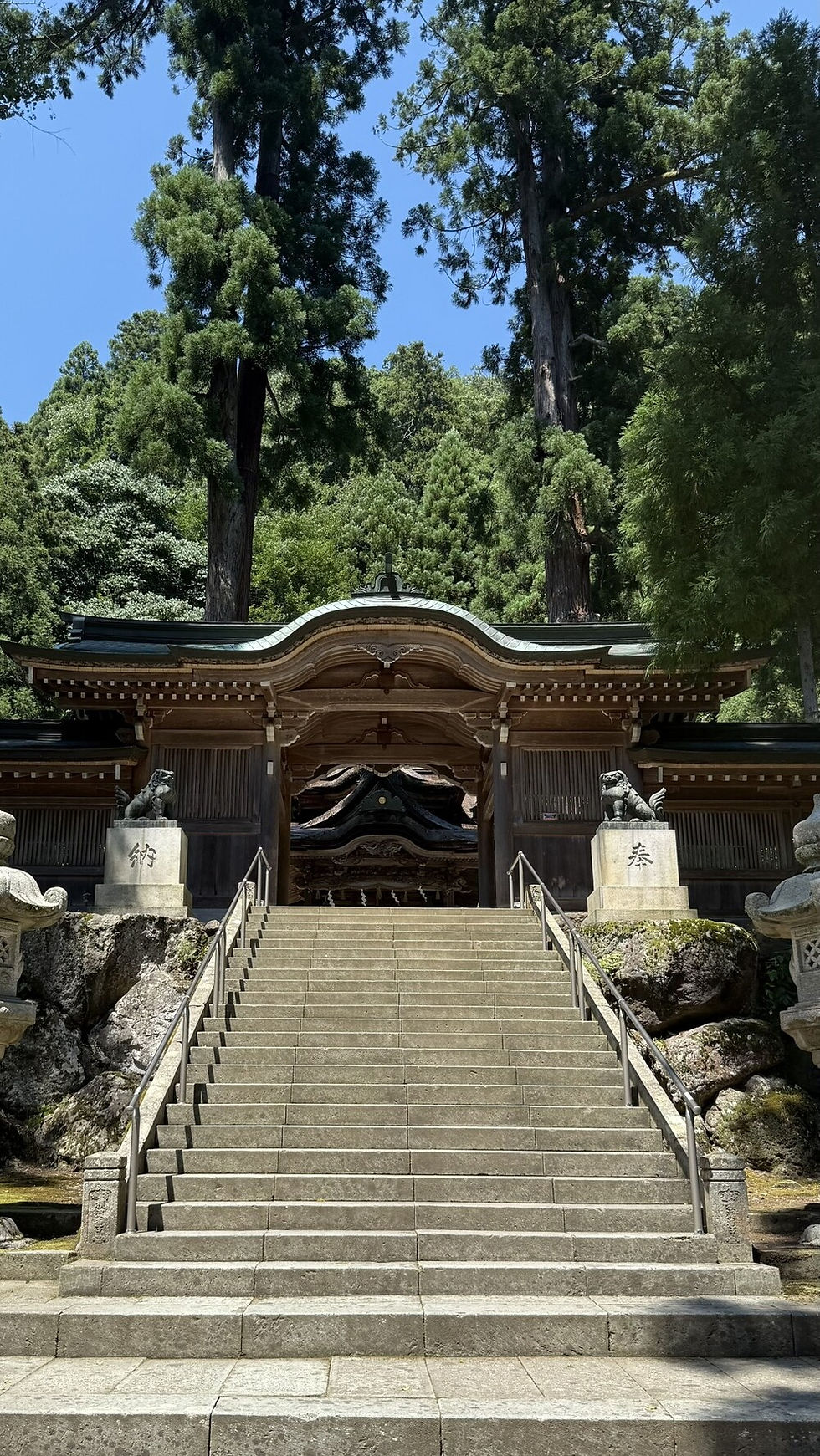








Comments